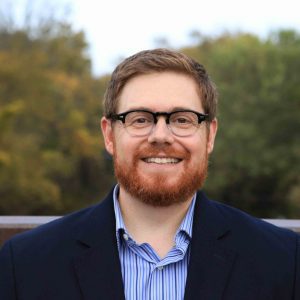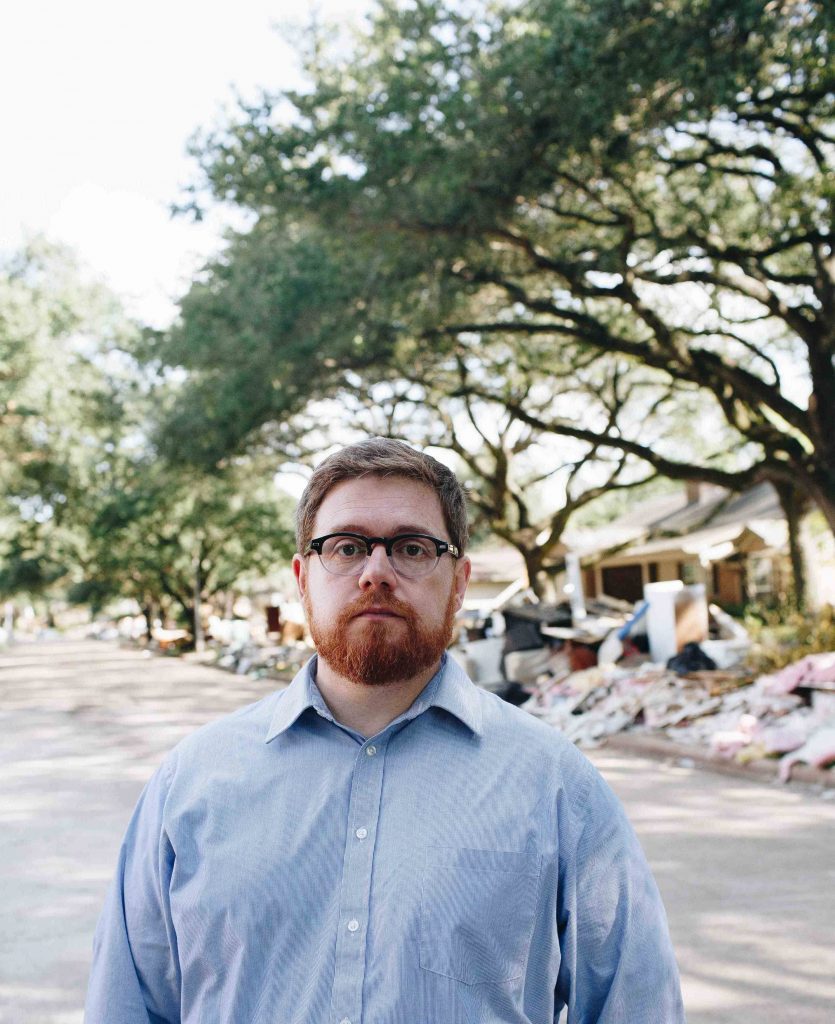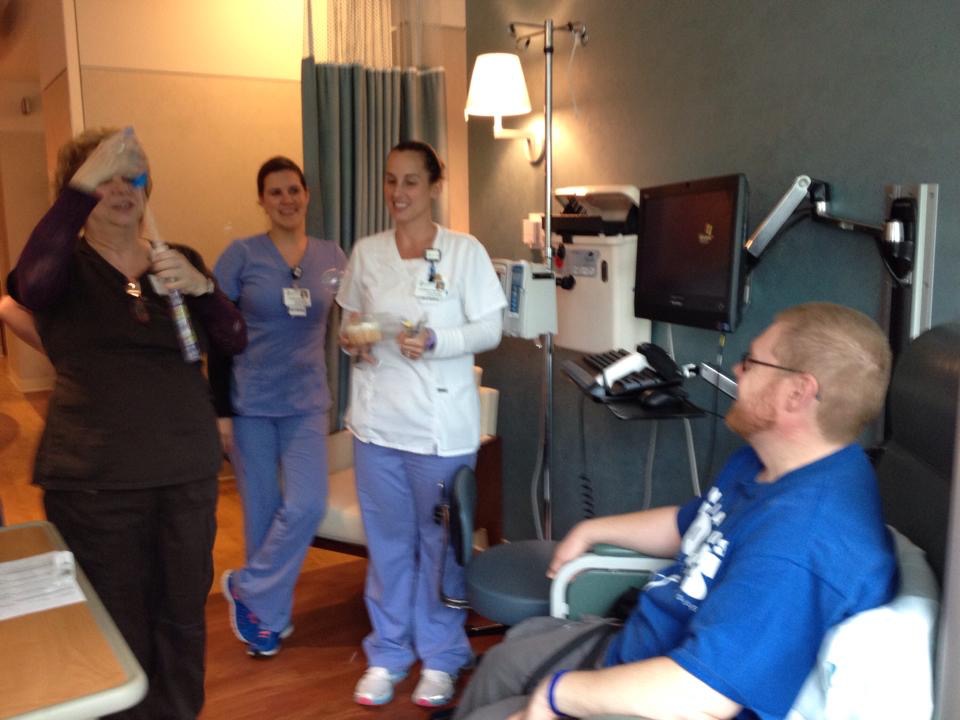My Walking Disaster
How cancer gave a disaster psychology expert a deeper understanding of how to help people in a crisis.

I have spent my career studying disaster psychology, but I never dreamed I would become my own walking disaster.
Here’s how this came to be.
I earned my master’s degree in counseling psychology and started teaching at the University of Southern Mississippi in 2005. Six days later, Hurricane Katrina hit our community—giving me firsthand disaster experience.
About five years later, I joined the doctoral psychology department at Wheaton College in Chicago and started the Humanitarian Disaster Institute, a faith-based academic disaster research center.
Little did I know during my second year there I would face my own personal disaster.
My personal disaster
I started experiencing some strange health symptoms, including stomach and pelvic discomfort.
When I saw a specialist, he pretty much told me I needed more fiber in my diet. Some fiber packets helped me feel better, but the symptoms lingered.
About a year later, the symptoms grew worse, now with pain radiating down my legs.
Fast forward a few weeks to when I sat in an oncology waiting room. A doctor briskly walked in, took out his computer and looked at images of my body on a screen. He turned and to me and said those words that no one wants to hear: “It’s cancer.”
He explained that because it wasn’t caught early, the cancer had spread from a tumor in my colon and created a mass in my pelvis, making it stage IV colon cancer.
He told me if there was anyone I wanted to see, now was the time.
As the news started to sink in, I began to cry.
With the best possible bedside manner, my oncologist encouraged me to pull myself together and asked me what I do for a living. I shared about my work as a disaster psychologist.
He paused and said, “Jamie, you’re about to face your own personal disaster.”
And he was right.

My walking disaster
I had spent my career studying disasters elsewhere, but this time there was no getting away from it. This crisis was happening inside of my own body.
I was a walking disaster.
In the summer of 2014, I started treatment with oral chemotherapy twice a day. I already hated mornings, but taking this treatment just made them worse.
Not long afterward, I underwent radiation, surgery and then eventually six months of chemo.
As the treatment wore down my body, I remember thinking, I wonder if this is how death feels.
Worse than physical pain
As challenging as the pain of treatment proved, the emotional pain I faced was worse.
I have a loving wife and three beautiful daughters in my life that I’m very grateful for, and they have red hair like me.
I remember thinking one morning, when I dropped off my youngest to preschool, about developmental psychology. I realized that if I don’t make it, my little girl’s memories of me were largely going to be the memories of other people, not her actual memories.
I fell apart.
How I found hope, strength and peace
I’ve done several disaster psychology studies that show that faith gives people hope and helps them make meaning out of tragedy. This certainly proved true for me.
Augustine talks about how in suffering we can experience God’s closeness and the sweetness of his presence, maybe even more so than normal times. This is something I didn’t fully understand before cancer.
During the hardest parts of my journey, I drew near to God and knew that he could handle the depths of my emotions, whether anger, sadness or confusion. Whatever I felt, I brought it to him through prayer.
I saw this modelled in the Psalms, a book in the Bible, which I read constantly during my cancer journey.
Asking God honest questions helped me wrestle with my feelings and discover hope.
I share more about this in my book, “A Walking Disaster: What Surviving Katrina and Cancer Taught Me About Faith and Resilience.”
I also found hope through letting others help me, especially when I was at my lowest points.

A long recovery
After enduring treatment, I reached a point where my scans showed no evidence of disease, which surprised me, because at times I wondered if I would even live through it.
I felt relieved, but also shattered. It took me eight or nine months of recovery before I felt like I could reach a baseline of being able to think clearly.
I’m a Type A person who likes to get a lot of stuff done. Cancer forced me to slow down, reset my goals and practice self-compassion.
I also learned about accepting compassion from others. My family and friends and colleagues drove me to chemotherapy appointments, substitute taught my classes and offered me words of encouragement and hope.
As a disaster psychologist, I’m used to being the one who helps others, and I struggled to let go of that identity.
But in some ways, it was good for me.
Because there are times in our lives when we will not have the strength to pull through on our own. We need the help of others. This is a lesson that I am still learning, but it has reshaped my thinking both personally and professionally.
Helping others
My experience with cancer gave me the best ground level insight for what it is like for a person to face a disaster.
During my survivorship, I created a disaster assistance method called Spiritual First Aid. I drew upon 15 years of disaster psychology research, but especially my personal experience with cancer.
Spiritual First Aid helps people identify and respond to the five core needs of a person: belonging, livelihood, emotional, safety and spiritual (BLESS method) and applies to variety of disasters, including natural, health related or even a global pandemic.
We launched Spiritual First Aid shortly after Covid-19 hit, and it quickly gained traction. At least 20,000 people learned about this method through online seminars and more than 1,000 people have signed up for the 10-hour course.
Besides the pandemic, we have also heard a lot of positive feedback from the cancer community. People are often overwhelmed with how to help someone facing cancer. Several chaplains, nurses and caregivers have told us the BLESS method has helped given them tangible ways to care for others.
As hard as my cancer journey has been, I’m glad to know that my experience is helping others, which I find very redeeming.
Redeeming your disaster
It’s now been more than seven years since I began my cancer journey. In many ways, survivorship has not been as straightforward as I would like, but I’m grateful to be here.
I continue to remain cancer free, but I have faced some hurdles, including a few hospitalizations, because of side effects from my treatment.
I’m thankful to be here, making memories with my family, and to continue my work as disaster psychology expert, seeking to help others with a deeper understanding of what they go through.
I would encourage others to not face cancer or any disaster alone. Like I found, there is blessing in letting others help you.
As my story shows, God can redeem your disaster no matter how big or what kind, he can bring healing and redeem you. Now it may be in this life, or it may be the next, but God can bring you through it.
Even if you face your own walking disaster, like I have, you can find help and especially hope amidst it.
To discover how prayer can help you on your journey, read Asking God for Help.
For more help with fear from cancer read:
I have a question or comment
How to find God’s hope, strength and peace

